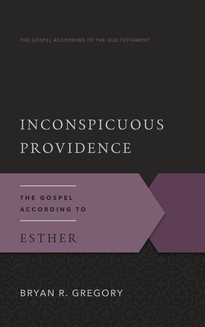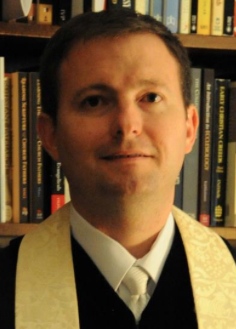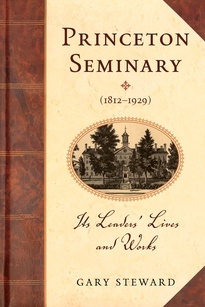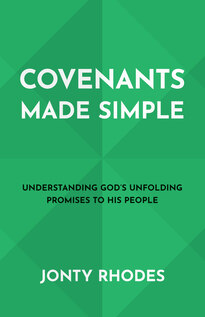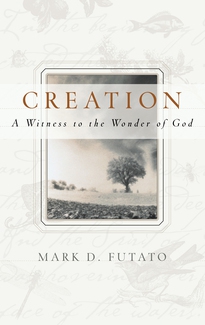This week’s author interview is with Dennis Johnson, author of 4 P&R titles: Triumph of the Lamb, Him We Proclaim, The Message of Acts in the History of Redemption, and Philippians, part of the REC Series.
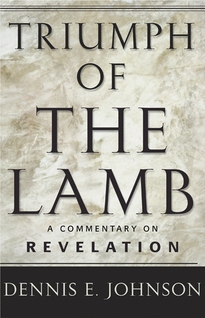
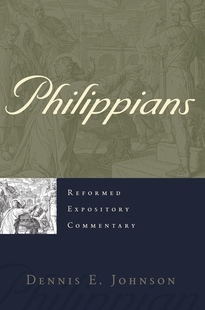
- Question #1 – Tell us a little bit about yourself: where you’re from, family, job, personal interests, unique hobbies, what do you do in your spare time, etc.
I was born and grew up in southern California and attended Westmont College in Santa Barbara, where I met my wife, Jane. We married the day after we graduated, were dorm parents that summer as I taught a beginning course in Greek, then drove across the U.S. for me to attend Westminster Theological Seminary in Philadelphia. After receiving my M.Div., I pastored Orthodox Presbyterian Churches in New Jersey and then (back home) in East Los Angeles. We have four adult children, all married, and 16 grandchildren. Our most recent is a granddaughter, Claire, adopted by our daughter and son-in-law in China in October 2014 and now getting acquainted with her older brothers and sister, as well as Mom and Dad, in Colorado.
- Question #2 – Which writers inspire you?
I greatly admire the clarity of expression and simple elegance that I see in the theological and apologetic works of C. S. Lewis, J. Gresham Machen, and J. I. Packer. John Piper’s exultant joy in the majesty of God whets my spiritual appetite to know my Savior better.
- Question #3 – Did you always enjoy writing?
For me, starting to write almost anything is agony (even when I am passionate about the topic), and then continuing to write it is a blend of drudgery and (now and then) exhilaration (when the words seem to “flow” and to “fit”). But then having finished writing something brings at least a sense of relief, and at best a sense of grateful delight. I have always enjoyed reading well-crafted literature, and was an English literature major in college. I think that exposure to authors who handle the language well has helped me develop a mental “ear” for clarity and vividness. I aim for these qualities, often miss, but occasionally am happily surprised to re-read something I wrote earlier and to find it moving.
- Question #4 – What inspired you to write the REC book, Philippians?
One of the four editors of the Reformed Expository Commentary approached me about contributing a volume to the series. Many of the books that I have preached through in my ministry were already assigned to others, but Philippians was available. I hadn’t preached straight through that joyful little letter of Paul, but I had preached on many of its texts. When the REC editors gave the “green light” to my tackling Philippians, I made it a point to preach on successive texts in the epistle whenever I was invited to preach in my home congregation or to other churches, until I had actually preached straight through the letter in one congregation or another. I was aware when I started that joy was a central theme of this message from the apostle in chains. What grabbed my attention as I worked through Philippians was how consistently Paul takes every pastoral issue—suffering, rivals, life-or-death outcomes, personal disagreements, financial need and contentment, assurance of salvation, and more—to the touchstone of Christ and his grace.
- Question #5 – Do you have a specific spot that you enjoy writing most?
Although I don’t do all my writing there, I have a wonderful, snug study at home with a desk with vast amounts of surface space (when I haven’t cluttered it with piles of papers and books that I intend to read soon). It’s quiet, not far from our kitchen (coffee, snacks, etc.), and I can hear children play on the school playground that our back yard overlooks.
- Question #6 – What book are you reading now?
I am finishing the fourth and final volume of Andrew Peterson’s Wingfeather Saga, The Warden and the Wolf King, so that I can interact by email with some of my grandchildren, who are also reading it in the various distant places where they live. After I finish this, I plan to read Marilynne Robinson’s recent novel, Lila, having enjoyed her earlier books such as Gilead.
- Question #7 – Do you have a favorite author? Who is it and why?
Among biblical scholars and theologians, I would be hard pressed to name a “favorite.” I learn much from the writings of John Murray, especially the care with which he drew doctrinal insights from the text of God’s Word; and from J. I. Packer’s articulation of biblical truth with precision, balance, and (again) fidelity to the Scriptures. Geerhardus Vos’s style is daunting, but his insights into the redemptive-historical unity and development of the Bible are worth the effort. I also greatly appreciate G. K. Beale’s and R. T. France’s sensitivity to the interrelationship of the Old and New Testaments. David Powlison and Ed Welch make me wise in the depths and complexities of the human heart—my own heart—and show me how God’s grace in the gospel meets our most profound needs for the comfort and cure of our souls.
Among poets, my favorite is George Herbert, the Anglican pastor and metaphysical poet of the 17th century. Not only does Herbert use words strategically, sparingly, and intriguingly, but also his poems display transparency in his relationship to God and wonder over God’s grace in Christ. Behind him would come Robert Frost, who almost makes me see what it’s like to live in New England and among New Englanders, and Gerard Manley Hopkins, whose word-portraits take me by surprise.
I also enjoy murder mysteries. Dorothy Sayers’s Lord Peter Wimsey has long been my favorite sleuth, but over the last year I must confess that Lord Peter has come up against stiff competition from Louise Penny’s Chief Inspector Armand Gamache of Quebec. Gamache recruits for his homicide team losers who have alienated their superiors in other departments. Then he tries to rehabilitate them by teaching them that they will become wise and do well if they can bring themselves to say—and mean—four simple sentences: I don’t know. I need help. I’m sorry. I was wrong.
- Question #8 – What advice would you give to aspiring writers?
Find an astute personal proofreader/editor who will not only catch your grammatical flaws (better than your computer’s spell-check function) but also tell you frankly when your writing is not making sense or uses too many words. I discovered and married such an editor almost 45 years ago, having served as her assistant editor on our college newspaper. So I benefit from her expertise at bargain rates. She gives my efforts that perfect blend of encouragement and critique that makes the product better, even before I dare send it off to a publisher.
- Question #9 – Do you have a favorite book that you have written?
I have heard most often that Triumph of the Lamb, my commentary on Revelation, and Him We Proclaim, my introduction to Christ-centered preaching (both P&R titles), along with Counsel from the Cross, which Elyse Fitzpatrick and I co-authored, have been helpful to other Christians and to pastors. Whenever a pastor tells me that he is daring to preach through the whole book of Revelation or that he sees better how to connect Old Testament texts to their fulfillment in Jesus, I am grateful. Since others have found these titles useful, they are my favorites.
- Question #10 – How do you deal with writer’s block?
Writer’s block threatens me at two points. First, when I’ve done a lot of reading on a subject but the ideas and information are swirling around chaotically in my mind, I find that I need to step back and force myself to focus on how to structure what I have been learning in a way that makes sense to me and, I hope, to others. So I have to work on outlining, identifying main themes and then subpoints under those themes, to begin to break down the big, daunting whole task into a series of smaller tasks that are sensibly related to each other. (I may end up rearranging the order that I first came up with, as the structure of what I have to say becomes clearer in the writing.)
When I have sorted out ideas and themes and organized their relationships by outlining, then the second phase of writer’s block sometimes sets in: It’s the challenge of coming up with the first sentence, to start a chapter or a subsection of a chapter. The only way that I’ve found to break through this block is simply to start composing on my computer, realizing that I don’t have to get the opening sentence “perfect” directly out of the gate. If I just get myself into the thought process somehow or other, I’ll have plenty of time to refine or replace that opening sentence later on.
- Question #11 – If you have a favorite book of the Bible, what is it and why?
Right now, it’s Philippians, because I’ve been “living” with Paul under house arrest in Rome for the last several years as I preached and wrote on his letter. Long term, Hebrews is at the top of my list, since it shows how Jesus is the destination toward whom so much of the Old Testament has always been pointing—not only his reconciling work as our priest, but also his revealing work as the Son who exceeds the prophets, and his kingly task of disarming and destroying our enemy the devil.
- Question #12 – Favorite food?
Scallops, either breaded and fried or else grilled. Happily, we have a terrific seafood restaurant only 20 minutes from our home.
_____________________________________________________________________________
Want to learn more about Dennis Johnson?
_____________________________________________________________________________
